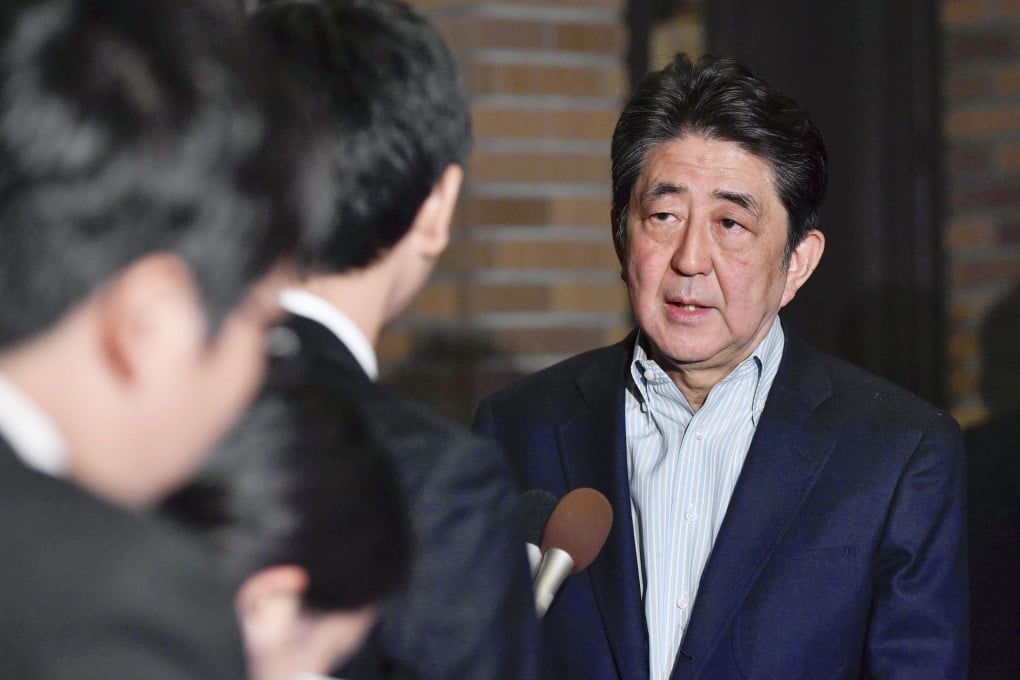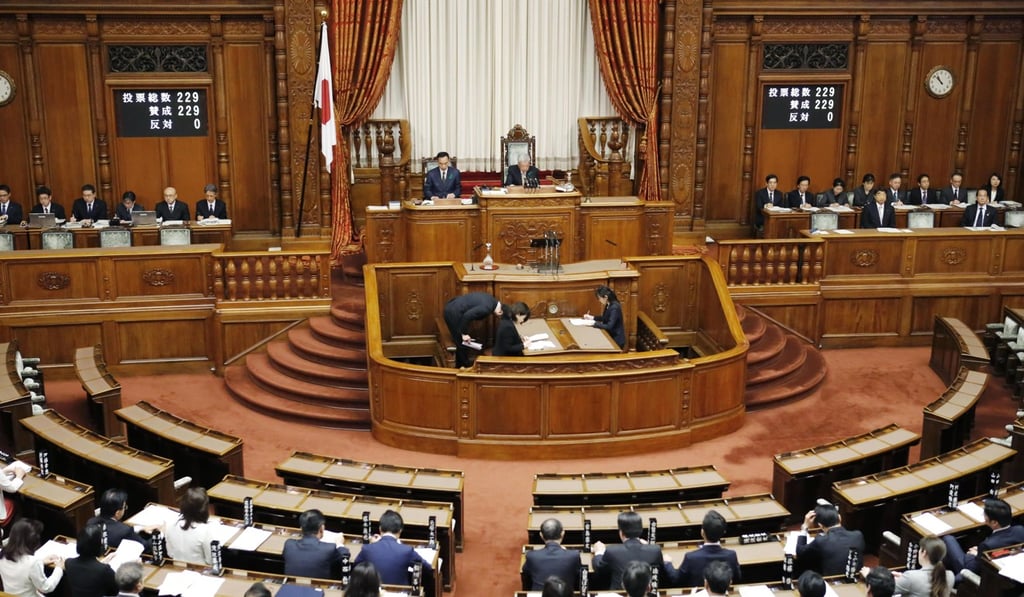Japan enacts legislation making preschool education free in US$7 billion bid to expand child care support
- Bill was passed by the House of Councillors on Friday, amid criticism that the government should focus on reducing the number of children on waiting lists

Japan enacted legislation Friday making preschool education free as part of Prime Minister Shinzo Abe’s drive to expand child care support and stem the country’s falling birth rate.
The government will use revenue from the planned consumption tax hike in October to run the free education program that is expected to cost 776 billion yen (US$7.1 billion) per year.
The bill, which secured lower house approval in April, was passed by the House of Councillors on Friday, amid criticism from some opposition lawmakers that the government should first focus on reducing the number of children on waiting lists for nursery school places before making preschool education free.
Under the programme, the government will make preschool education free for all children aged between three and five. Day care services will also be made free for children up to two from low-income households.

If parents send their children to preschools that are not authorised by local governments, maximum monthly subsidies of 37,000 yen per child will be given for those aged between three and five, and 42,000 yen for those aged two and younger. School meals will not be covered.
“The financial burden of education and child-rearing weighs heavily on young people, becoming a bottleneck for them to give birth and raise children. That is why we are making (education) free,” Abe told a parliamentary session on Thursday.